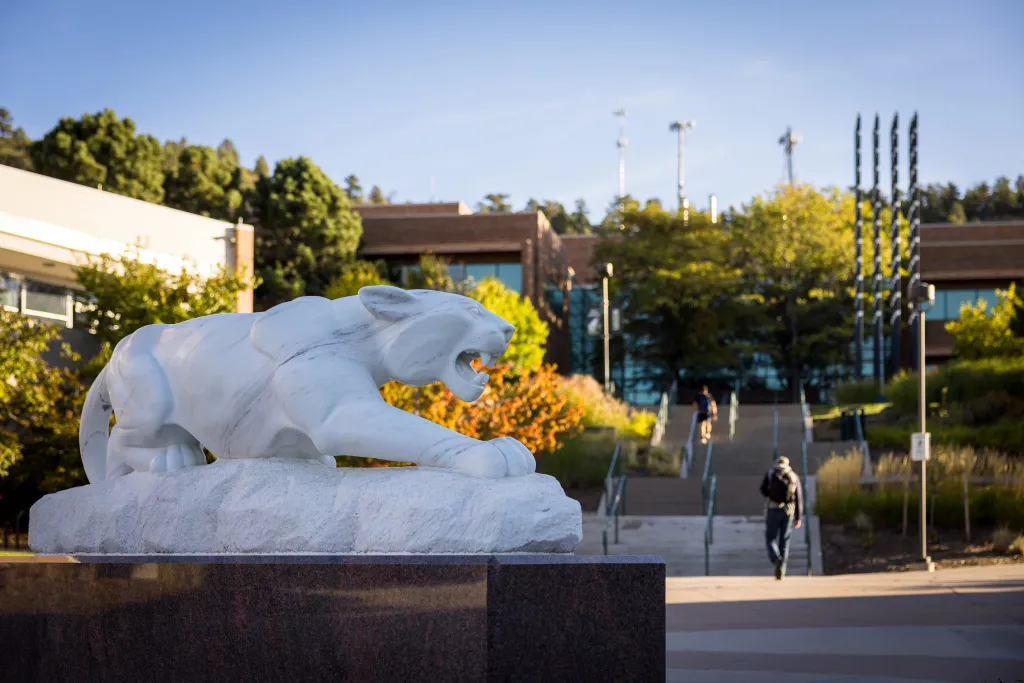
GPS Faculty Expectations
GPS Faculty Expectations
- Describe why a university education is important in the pursuit of personal and professional goals.
- Act as a responsible, ethical college student through the use of intellectual curiosity, creativity, critical thinking, analytical reading, and listening skills
- Act as a civil and responsible university citizen through the development of necessary civic, ethical, and social competencies.
- Develop the self-advocacy skills to access personal, academic, professional and information technology support at UCCS.
- Analyze, apply, and integrate knowledge and skills as they relate to the disciplinary focus of the GPS section.
- Communicate effectively through writing to receive, comprehend, and convey information.
- Communicate effectively through a prepared, purposeful individual or group presentation.
The Gateway Program Seminar is designed as an early start program to help students transition smoothly to college, adjust gradually to the demands and rigors of university life, stay in college, and succeed. Here are the goal areas faculty will engage GPS students with:
- Personal: what being a college student means for you.
- Develop intellectual curiosity, habits of mind, and engagement to foster learning skills for higher education
- Participate in Discourse Communities
- Establish personal responsibility: personal goals and learning strategies, time-management, use of resources
- Recognize the importance of relationships with faculty, Peer Leaders, and classmates
- Academic skills: what academic skills are required for college success
- Communication skills
- Critical thinking
- Information literacy
- Technology literacy
- Knowledge of campus resources and expertise in the utilization of these
- Exposure to both discipline-related perspectives and the interconnectedness of knowledge
- Academic topic:
- Draws on several disciplines, introducing you to the arts, sciences, and social sciences
- In-class discussions develop aspects of assigned readings and foster critical thinking
- Writing Assignments allow expansion of selected topics, while promoting the development of key skills
- Community: what the campus offers you
- Lasting relationships with diverse individuals in a learning community—peers, faculty, and staff
- Preparation for life-long learning experiences and responsible citizenship
Faculty will integrate the following within the GPS course, regardless of modality:
- GPS textbook—Navigate
- A minimum of three (3) co-curricular shared learning experiences into the course curriculum, referred to as Campus Connections one of which must be career exploration.
- One (1) final capstone project, written or oral. These projects can be assigned as individual or group projects.
- One (1) curricular or co-curricular experience that explores civic discourse, ethics, leadership, and or volunteerism. Referred to as Service Learning Project.
- One (1) curricular or co-curricular opportunity for collaboration with Academic Advising
- A minimum of one (1) opportunity for collaboration to support students via conference, office hours, or peer leader support.
- Integration of Smartmoves training and Convocation into the course, within the first two weeks of class.
Faculty will offer guidance, mentorship, and programmatic support in the following areas:
- Introduce students to a lasting community of peers, faculty, and campus contacts
- Guide students through beginning to establish academic, career, social, and wellness support networks on campus to meet the expectations of college and beyond through curriculum or co-curricular experiences
- Introduce students to campus resources such as the Career Center, Wellness Center, Office of Student Life, Kraemer Family Library, and Excel Centers
- Introduce students to technology in the classroom through the demonstration of text resources, Canvas, student portal, email, and more.
- Begin to build community and belonging through shared learning through curricular and co-curricular experiences, such as required course objectives, small group work and discussions
Faculty may support the Faculty Director of GPS with research and assessment of GPS via:
- Course surveys, including student survey and faculty survey distribution and data collection
- Design and assessment of programmatic co-curricular activities and experiences
- Classroom observations